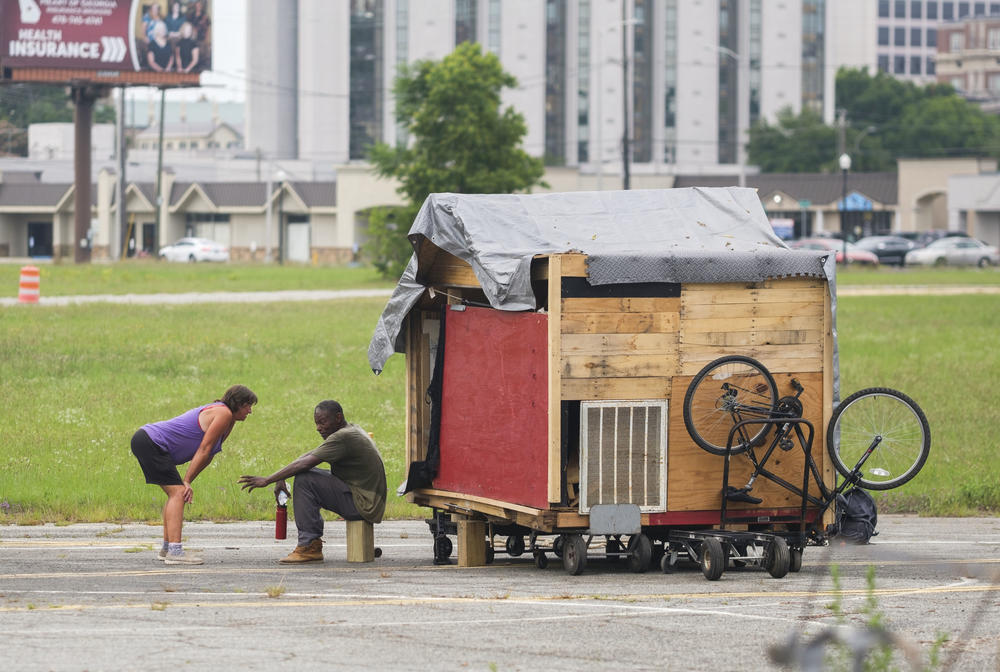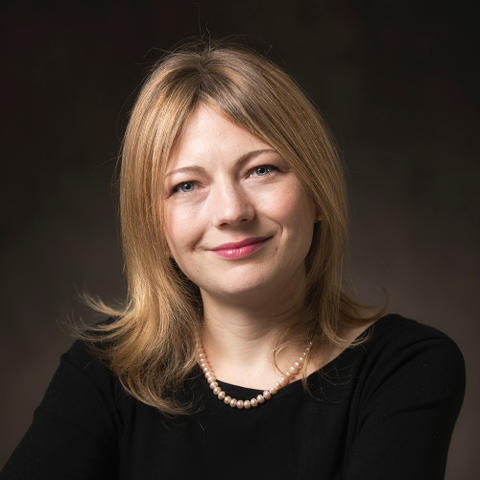
Caption
Pat Garrett, left, and her partner Cedric moments before wheeling their home out of the way of Macon-Bibb County Public Works bulldozer on June 8, 2022. Macon-Bibb County bulldozed one of the city's largest homeless encampments, saying it was necessary as a public health measure.
Credit: Grant Blankenship/GPB

